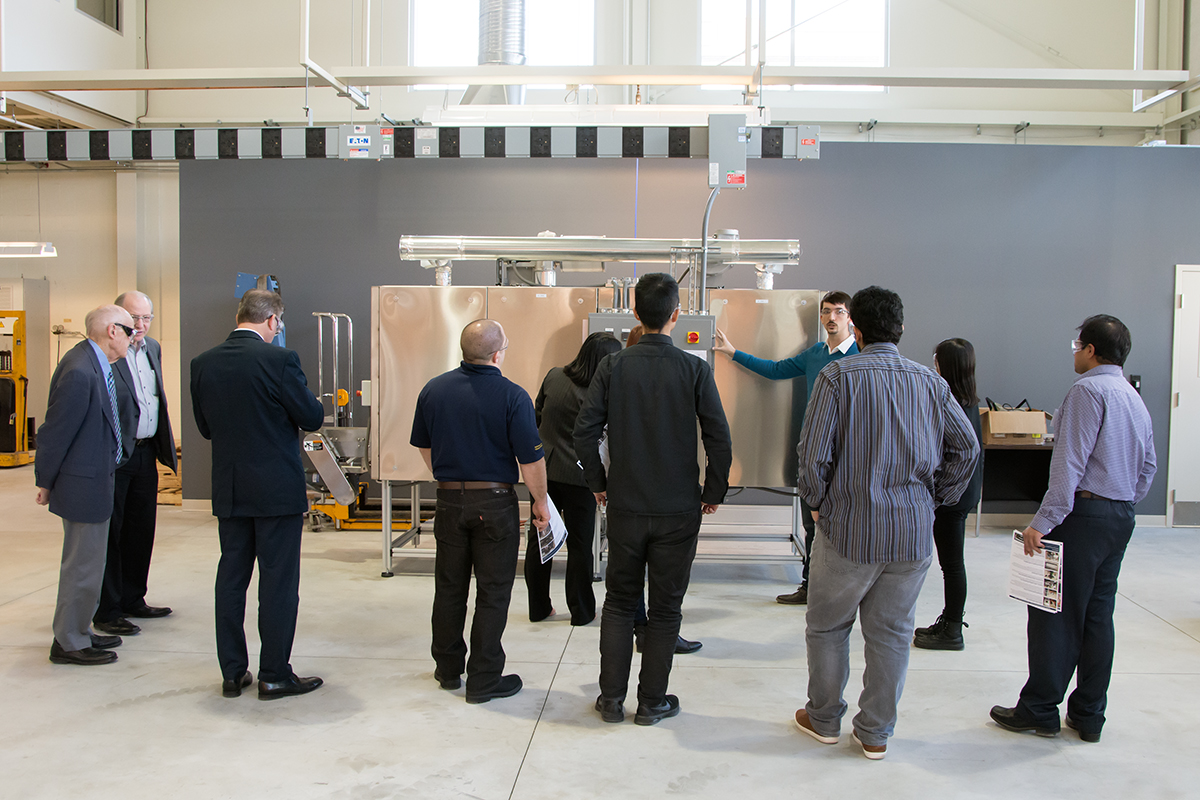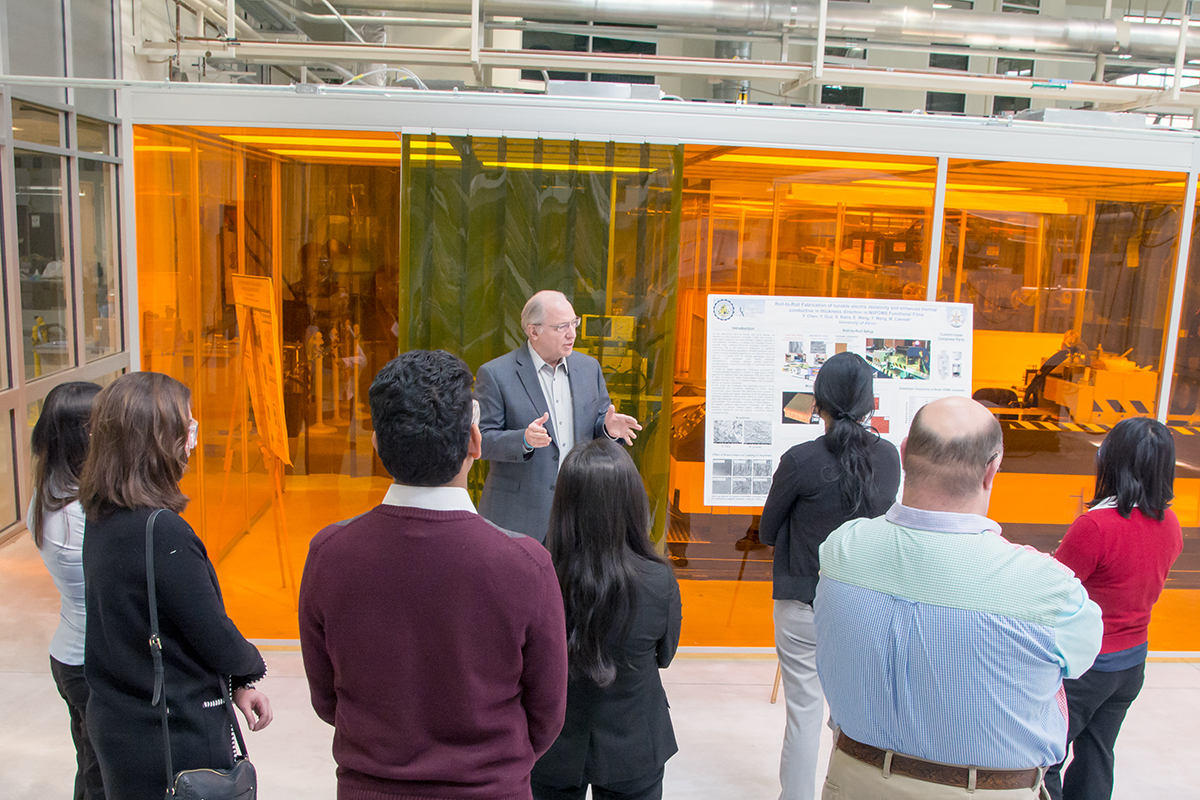Clean water and air, as well as products such as petroleum based fuels that are free of contaminants, are made possible by filtration. Filtration design, in turn, is enabled by multi-disciplinary technologies. That is why the Coalescence Filtration Nanofibers Consortium (CFNC) at The University of Akron (UA) was established by research leaders from both the College of Engineering (COE) and the College of Polymer Science and Polymer Engineering (CPSPE). Reaching beyond the science requires real-world application development which is facilitated by industry participation in the center. These partnerships between the colleges and with industry are advancing coalescence filtration technologies into products that purify our water, air and commercial products.

Patrick Thomas, Process Engineering Specialist at NPIC, provides information on processing equipment in NPIC to CFNC members
The Coalescence Filtration Nanofiber Consortium (CFNC) is in its 21st year. It presently has 6 company members (Ahlstrom-Munksjȍ, Bekaert, Cummins, Donaldson, Parker, and Hollingsworth & Vose). On April 5 and 6, 2018 the CFNC advisory board convened at UA for the spring meeting. Nine representatives from the member companies joined the center directors, Dr. George Chase and Dr. Darrell Reneker, along with other faculty and students engaged in research for the center. Dr. Reneker, Distinguished Professor of Polymer Science, is a pioneer of polymer electrospinning technology with nearly three decades of innovations in the field. Dr. George Chase, Director of Research and Professor of Chemical Engineering, is a filtration engineering expert who has employed and advanced the electrospinning and nanofiber technologies in filtration design. Together they lead the very industry-relevant mission of the center, whose scope of research includes theory, modeling and experimentation to advance the fundamental and applied design of the next generation of filtration technologies.
The agenda for the two day event included technical presentations, center business meetings and a student poster session, as well as a tour of the National Polymer Innovation Center (NPIC) where a key enabling technology, nanofiber electrospinning, capabilities are integrated into leading-edge pilot scale equipment.
The capabilities of NPIC facilitates advancement of experimentation from the lab-bench to the pilot scale, serving as a hub for faculty members, graduate students, and research partners from industry working cooperatively to provide solutions to emerging challenges, one of which is the need for clean water, air and contaminant-free products.

